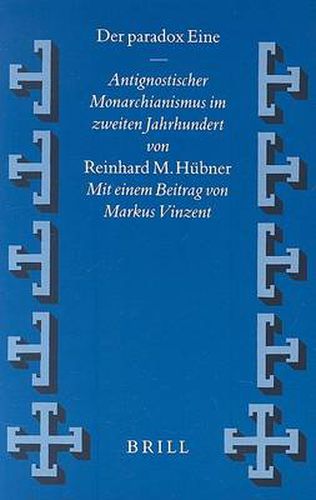Readings Newsletter
Become a Readings Member to make your shopping experience even easier.
Sign in or sign up for free!
You’re not far away from qualifying for FREE standard shipping within Australia
You’ve qualified for FREE standard shipping within Australia
The cart is loading…






These essays propose a new dating of, and historical setting for the letters of Ignatius of Antioch . In so doing this volume offers a contribution to the study of Monarchianism and early church history. An examination of the fragments of Noetus of Smyrna , the founder of Monarchianism, leads to the discovery of the oldest Regula fidei , and of its origin as part of anti-gnostic polemics. On the ground of late 2nd-century parallels, this Regula can be dated between 160 and 180 CE. It is within this context that the so-called Letters of Ignatius fit. As a result of these findings this volume argues for a significant revision of our understanding of early church history. Monarchianism ( Sabellianism , Partripassianism ), later considered heretical, is shown to have been the almost universally accepted belief within the Church up to the period of the Roman bishops Zephyrinus and Callistus.
$9.00 standard shipping within Australia
FREE standard shipping within Australia for orders over $100.00
Express & International shipping calculated at checkout
These essays propose a new dating of, and historical setting for the letters of Ignatius of Antioch . In so doing this volume offers a contribution to the study of Monarchianism and early church history. An examination of the fragments of Noetus of Smyrna , the founder of Monarchianism, leads to the discovery of the oldest Regula fidei , and of its origin as part of anti-gnostic polemics. On the ground of late 2nd-century parallels, this Regula can be dated between 160 and 180 CE. It is within this context that the so-called Letters of Ignatius fit. As a result of these findings this volume argues for a significant revision of our understanding of early church history. Monarchianism ( Sabellianism , Partripassianism ), later considered heretical, is shown to have been the almost universally accepted belief within the Church up to the period of the Roman bishops Zephyrinus and Callistus.